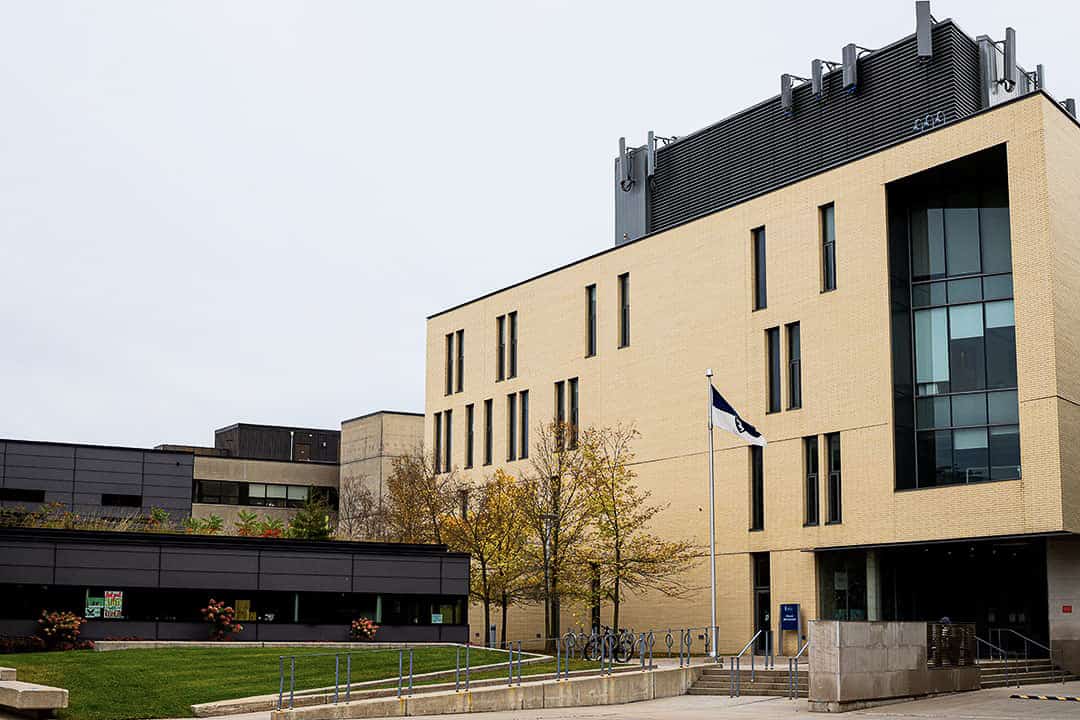On October 20, the UTSC Academic Affairs Committee held its second meeting of the academic year. At the meeting, UTSC Registrar and Assistant Dean Strategic Enrolment Management Shelby Verboven announced that registrars across U of T’s three campuses are working to align sessional dates for first-entry undergraduate divisions by the 2024–2025 academic year. Members of the committee also discussed UTSC’s policies in light of the ongoing COVID-19 pandemic and approved two new course offerings.
Aligning tri-campus start dates, reading weeks, and exams
Verboven reported that a group of registrars across U of T is working to provide one set of sessional dates for all first-entry undergraduate divisions. If successful, the project will align semester start dates, reading weeks, and exams across UTM, UTSC, and the Faculties of Arts and Science, Applied Science and Engineering, Landscape and Design, Architecture, Music, and Kinesiology and Physical Education.
Verboven said that the differences in sessional dates across the three campuses “cause a lot of confusion and stress” among students. However, she noted the difficulty of undertaking such a large-scale project: “[Registrars] are working very hard to come up with aligned dates,” she said. “All the campuses have had to make some concessions.” Verboven said that the main challenge in aligning tri-campus sessional dates lies in divisions’ strong attachments to their current practices.
At the meeting, Jessica Wilson, a professor at UTSC’s Department of Philosophy, expressed her concern over the prospect of shifting UTSC to UTSG’s fall reading week schedule. She argued that UTSC’s fall reading week schedule is better: “It’s more centrally located in the middle of the semester, and it’s associated with Canadian Thanksgiving.”
In reply, Verboven said that UTSG scheduled their fall reading week to make space for Fall Convocation ceremonies in November. Nonetheless, Verboven assured Wilson that “[UTSC’s] reading week looks like it will move, but it’s not moving to the St. George reading week.”
“I am very confident that we will achieve aligned sessional dates for 2024–2025 across [said] divisions,” Verboven concluded.
While second-entry divisions — such as education, nursing, dentistry, pharmacy, law, and medicine — are not included in the current process, Verboven said that phase two of the alignment project could potentially include these divisions. She noted that the School of Graduate Studies and the professional faculties are particularly “interested” in joining the alignment process.
UTSC recognizes the eighth wave of the COVID-19 pandemic
On behalf of UTSC Dean and Vice-Principal, Academic William Gough, who was absent from the meeting, UTSC Vice-Dean Teaching, Learning and Undergraduate Programs Katherine Larson gave updates on UTSC’s COVID-19 policies.
Larson said that the UTSC administration is “conscious” of the eighth wave of the pandemic and the increasing pressures on Ontario’s health-care system. “To some extent, this was anticipated, given the onset of colder weather as well as spending more time in enclosed spaces,” she said.
Currently, the UTSC Dean’s Office is working with the Division of the Vice-President and Provost office, as well as divisions across U of T, to determine policies moving forward. “[This] may include reconsidering mask mandates,” Larson said.
Ninety seven per cent of UTSC courses are in person this fall. To enable students who are unwell to access classes remotely, UTSC continues to provide asynchronous delivery of large enrolment courses through WebOption, a program where UTSC hires videographers to record in person lectures and posts the recorded lectures on an online portal. Larson clarified that UTSC is prioritizing class sizes of 200 students and above for WebOption delivery. It is ultimately up to instructors of large course sizes to use WebOption.
“The expectation for all our courses — regardless of size — is that faculty are preparing to ensure that students are able to maintain their success in the course if they would have to be absent for a week or two,” Larson said. “Depending on the pedagogical approach that the faculty member wanted to take, they may have opted to take another route than recording.”
She said that UTSC’s approach to WebOption will continue into the winter 2023 term.
UTSC will also continue using a self-declaration absence form, but with slight modifications in the winter 2023 term, “in particular, on the length of time that students may declare,” said Larson. She added that the administration is planning to make major revisions to the policy by fall 2023.
“The goal is to ensure that there is supports in place for students who are unwell or need to be away in a way that minimizes the need for documentation that places pressures on our Health and Wellness Centre, while also clarifying the parameters around how the self-declaration form may be used in relation to term work and exams,” Larson said.
UTSC offers two new courses in winter 2023
Larson also reported that UTSC will offer two new courses in the winter 2023 term.
First, the Department of Historical and Cultural Studies is introducing HIS/WSTB22 — Histories of Black Feminism Canada: From ‘Runaway Slaves’ to #BlackLivesMatter. The course will survey the acts, deeds, and words of Black radical women in Canada. Robyn Maynard, an assistant professor at the department who joined UTSC last summer, is slated to teach the course.
Larson said that the course was created in response to the UTSC Campus Curriculum Review report, which was published earlier this year. The administration launched the review in fall 2020 to ensure that the programs at UTSC reflect the campus’ commitment to inclusion, recognizing Indigeneity and antiracism. The review focused on “Indigenous knowledges and knowledge systems, Black knowledges, racialized perspectives, and international and intercultural perspectives.”
In addition, the Department of Language Studies is introducing LINB35 — Introduction to Computational Linguistics. The course aims to provide students with a foundational understanding of cognitive modelling and natural language processing, while honing students’ skills in conducting linguistic research. “This is a course that is specifically designed for students who are coming into computational linguistics but with less background in computer science,” said Larson.
Committee members will meet again on January 10, 2023.


